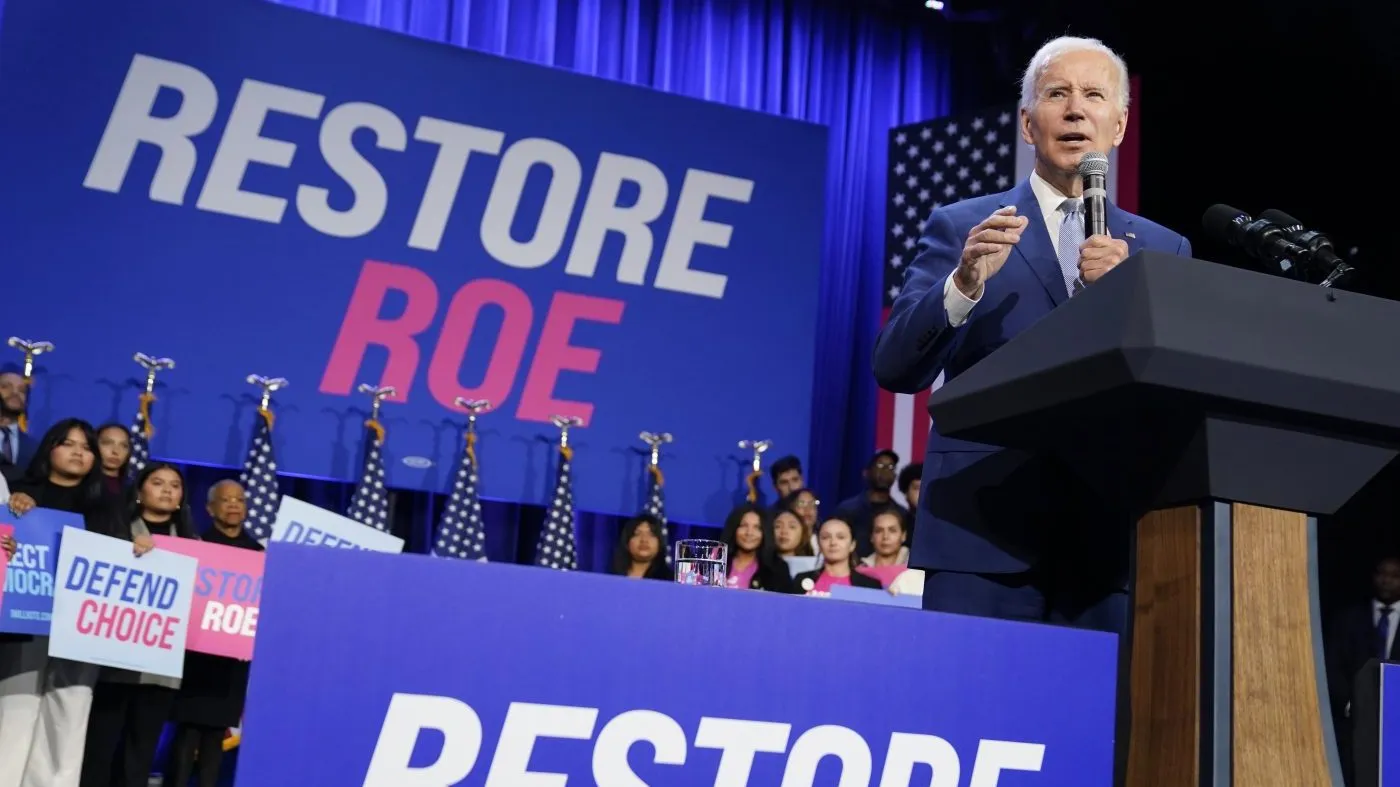## Introduction
The US Supreme Court recently made a significant ruling regarding Idaho’s strict abortion ban, allowing its enforcement even in medical emergencies. This decision has sparked a legal battle, with the Biden administration challenging the law. In this article, we will delve into the details of this case, exploring the arguments presented by both sides and the potential implications of the Supreme Court’s decision.
The Background of the Case
The controversy surrounding Idaho’s abortion ban stems from the Supreme Court’s decision to overturn Roe v Wade, which granted states the authority to impose severe restrictions or outright bans on abortion. In response to this ruling, the Biden administration issued guidance on the Emergency Medical Treatment and Labor Act (Emtala), a federal law that requires hospitals receiving Medicare funds to provide emergency care, including abortion, regardless of state-level abortion restrictions.

The Biden Administration’s Lawsuit
The Biden administration filed a lawsuit against Idaho, arguing that Emtala obligates healthcare providers to perform abortions for emergency room patients when necessary to treat an emergency medical condition, even if it conflicts with the state’s abortion restrictions. The administration contended that certain medical emergencies, such as severe bleeding, pre-eclampsia, and certain pregnancy-related infections, may require abortion care as a necessary stabilizing treatment.
According to the administration’s solicitor general, Elizabeth Prelogar, in a filing at the Supreme Court, “For certain medical emergencies, abortion care is the necessary stabilizing treatment.”
Idaho’s Defense
On the other hand, Idaho’s attorney general, Raul Labrador, argued that the Biden administration was misusing Emtala to impose a “federal abortion mandate” on states. He pointed out that Emtala focuses on preventing hospitals from refusing treatment to patients and does not explicitly mention abortion.
“Emtala says nothing about abortion,” Labrador emphasized during the court proceedings.
The District Court Rulings
The legal battle between the Biden administration and Idaho played out in the district courts, resulting in conflicting rulings. US District Judge B Lynn Winmill in Idaho sided with the administration, agreeing that Emtala requires healthcare providers to perform abortions in hospital emergencies, even if state laws ban the procedure.

However, in a separate case in Texas, another judge ruled in favor of the state, asserting that Emtala cannot be used to mandate hospitals to provide abortions for women whose lives are at risk due to pregnancy.
Appeals Court Decisions
The disagreement between the district courts eventually led to appeals court cases. In New Orleans, the federal appeals court reached a conclusion aligned with Idaho’s argument. A three-judge panel, consisting of two appointees of former President Donald Trump and one appointed by former President George W Bush, ruled that the Biden administration could not use Emtala to require hospitals in Texas to provide abortions.
US District Judge James Wesley Hendrix, a Trump appointee, stated in his ruling that adopting the Biden administration’s interpretation would force physicians to prioritize the health of the pregnant person over that of the fetus or embryo, even though Emtala does not explicitly address abortion.
Supreme Court’s Decision and Future Arguments
The US Supreme Court has now allowed Idaho to enforce its strict abortion ban, even in medical emergencies, while the legal fight continues. The justices plan to hear arguments in April, providing an opportunity for both parties to present their cases before the highest court in the land.
The outcome of this case will have significant implications for abortion rights and healthcare providers across the country. It will determine whether Emtala can be invoked to override state-level abortion restrictions and whether healthcare providers can be compelled to perform abortions in emergency situations.
Potential Implications
The Supreme Court’s decision on this case could set a precedent for future disputes regarding the intersection of federal and state abortion laws. If the court sides with the Biden administration, it could establish a broad interpretation of Emtala that prioritizes the health of pregnant individuals in emergency situations, even in states with strict abortion bans.
Conversely, if the court upholds Idaho’s abortion ban, it would signal a more limited interpretation of Emtala and potentially embolden other states to enact similar restrictions on abortion access.
Conclusion
The US Supreme Court’s decision to allow Idaho’s strict abortion ban to stand pending further hearings has thrust the issue of abortion rights into the national spotlight once again. As the legal battle continues, it remains to be seen how the court will ultimately rule and what impact this decision will have on abortion access in Idaho and beyond. This case highlights the ongoing tensions between federal and state powers and the complex nature of reproductive rights in the United States.
Disclaimer: The information provided in this article is for educational and informational purposes only and does not constitute legal advice.
